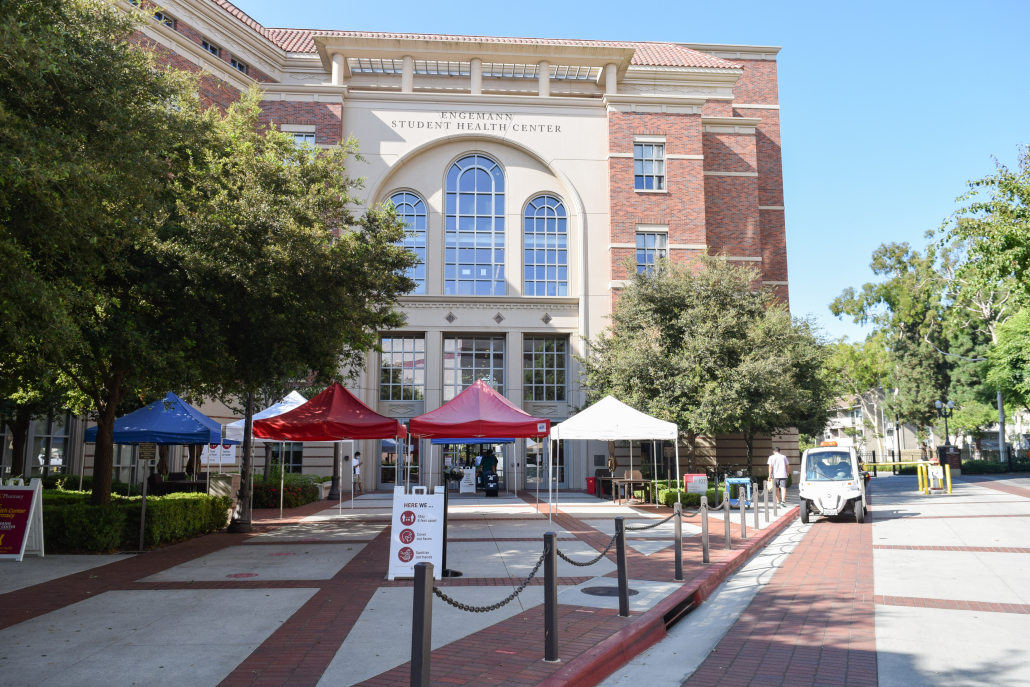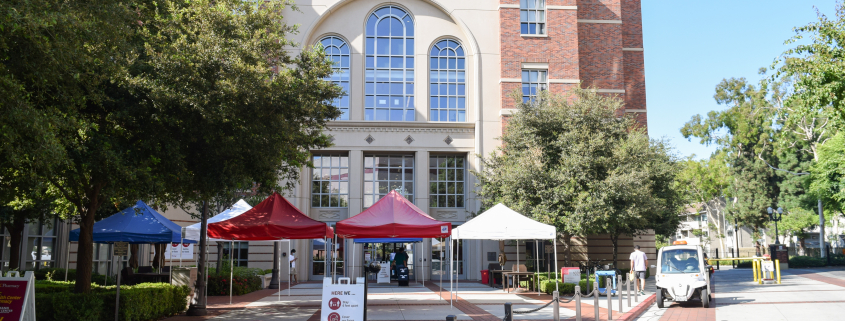Midterm ballot propositions to address healthcare

With the 2022 midterm elections just around the corner and contentious races for government office now in the endgame, California healthcare is also bracing for major change: Almost half of the propositions on the state ballot target healthcare.
Prop 1 is a constitutional amendment enshrining reproductive rights, including the right to an abortion; Prop 29 would, if passed, establish certain requirements for medical professionals at kidney dialysis clinics; Prop 31 would ban the sale of certain flavored tobacco products.
In a briefing with the Daily Trojan Tuesday, Chief Student Health Officer Dr. Sarah Van Orman discussed the potential impacts of these propositions.
“The evidence around flavored tobacco products as a gateway for youth is very strong,” Van Orman said, referring to Prop 31. “Those of us who spend time thinking about public health and tobacco control think that these measures around flavored products are extremely important, and they’re actually a key policy position that helps reduce youth use of tobacco products and nicotine-containing products.”
Products targeted by Prop 31 came under heavy scrutiny in the past few months, after the Food and Drug Administration ordered e-cigarette company JUUL Labs, Inc. to remove their products from the market on Jun. 23. The agency later issued an administrative stay on the order after it was blocked by a federal appeals court.
Van Orman declined to comment on Prop 29, but said that healthcare establishments generally are “subject to a whole range of requirements,” including from the state, accrediting organizations and payers.
“Single-issue requirements for staffing are not the way we handle staffing at our other kinds of healthcare facilities,” Van Orman said. “There is a range of ways in which we determine who’s on site at various kinds of healthcare facilities, and those are often determined by the healthcare professionals who are delivering care in those facilities.”
Prop 1 was one of many reactions nationwide borne out of the Supreme Court’s Jun. 24 decision to overturn Roe v. Wade. Gov. Gavin Newsom introduced the amendment as a proposition just three days later, writing in a press release: “California will not back down from the fight to protection abortion rights.”
While some worry that an influx of out-of-state abortion patients, further encouraged by Newsom, could strain California’s healthcare system, Van Orman said she does not expect the amendment to “have any immediate impact” if it were to pass.
“This is really a way of moving what is currently permitted in California by law into a right,” Van Orman said. “We know that people seek services because they need the services, and when they don’t seek services, it’s because they don’t have them available to them.”
Coronavirus cases climbed to 113 the week beginning Oct. 23, including self-reports and positive tests at Student Health. Van Orman attributed the increase to residual impacts from fall break.
“That was probably the more important event,” Van Orman said. “We have Halloween, we’ll now have homecoming; we do anticipate that as people gather, the numbers may continue to remain elevated.”
While Student Health did not observe “a bump” in cases during Halloween last year, Van Orman said large gatherings do see increases and precautions were necessary.
On Oct. 19, the Centers for Disease Prevention and Control approved Novavax monovalent coronavirus boosters for adults aged 18 or older as an alternative to the bivalent Pfizer and Moderna boosters. Van Orman said the Novavax vaccine would not be available at the University, but it “still is available locally” as an option for individuals with concerns about mRNA vaccines.
“The Novavax uses an older technology that’s been around; it’s something we’ve used for immunizations for years,” Van Orman said. “So we encourage people who have concerns about the mRNA vaccines — even though they’re very safe — that they do have an option to still be protected.”

